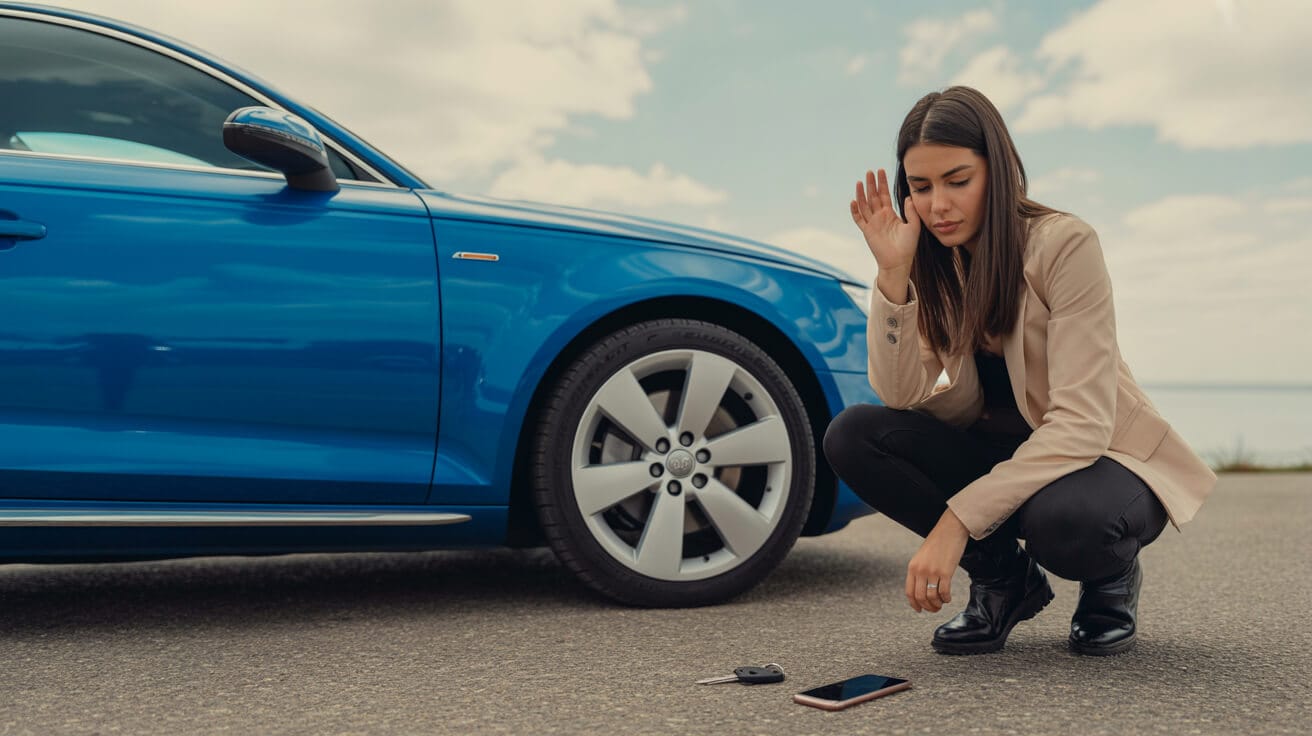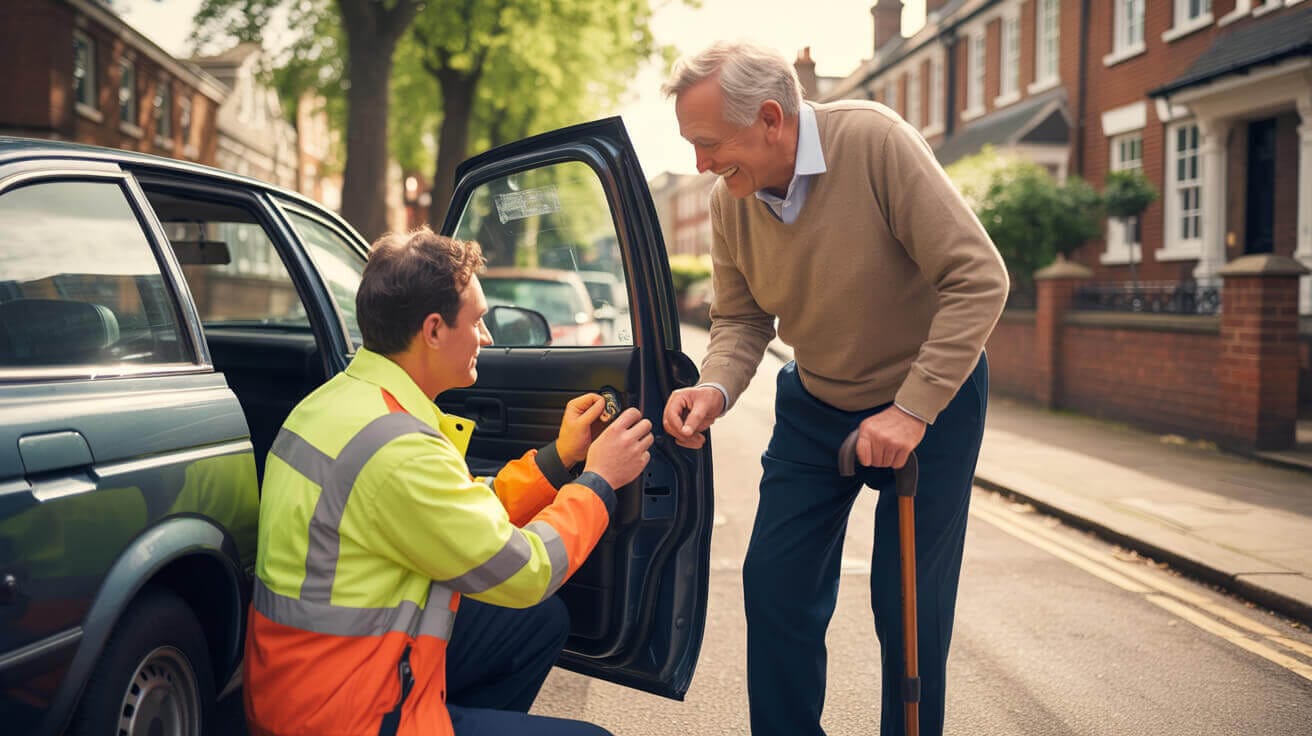Is On-Site or Workshop Car Key Programming Right for Your Situation?
When you can’t start your car or get inside, you want a fix that’s fast, secure, and proven—no regrets 12 months later. Both on-site mobile programming (where the specialist comes to you) and workshop-based programming (where your car is brought into a controlled facility) can solve your crisis, but only if they’re matched to your make, model, and compliance needs. Your goal is simple: get a working key and documented protection, done right the first time.
For most UK drivers, on-site key programming is available for everyday cars—think Ford, Vauxhall, Nissan, or BMW. That means you could have a new key coded and tested at home or work, saving you a recovery bill and lost time. However, if you drive a high-security model (recent Jaguar, Range Rover, or a vehicle with advanced digital keys), certain security procedures, digital key provisioning, or immobiliser resets require specialist workshop equipment to meet both legal and insurance demands.
The bottom line: A trustworthy provider will check your eligibility using your vehicle’s details, not just make promises over the phone. They’ll document why on-site is appropriate—or when a workshop is essential—giving you clear answers and a record you can show your insurer if a question comes up later.
When Mobile Programming Fits
If your vehicle uses a standard physical key or a common remote (most models from 2012 onwards), on-site programming by a properly equipped and certified locksmith can save hours and restore access swiftly. You still want:
- A check on your car’s eligibility before any booking.
- Full documentation and an audit trail (photos, job logs, staff IDs).
- Identity and consent verification—no shortcuts.
- A clear explanation of any reasons a workshop visit may be needed.
Setting strict requirements upfront helps you avoid surprise costs or half-finished work.
Table: Typical Programming Path
Before you decide what’s best, quickly compare how your situation fits:
| Vehicle Type | Mobile Possible | Workshop Required |
|---|---|---|
| Standard 2012–2020 | Yes | Rarely |
| Pre-2008/CAN Issues | Sometimes | Often |
| Advanced Digital Key | Sometimes | Frequently |
| Full Audit/Warranty | Required | Required |
Make your choice based on evidence, not just speed.
How Top Professionals Secure Your Car With On-Site Programming
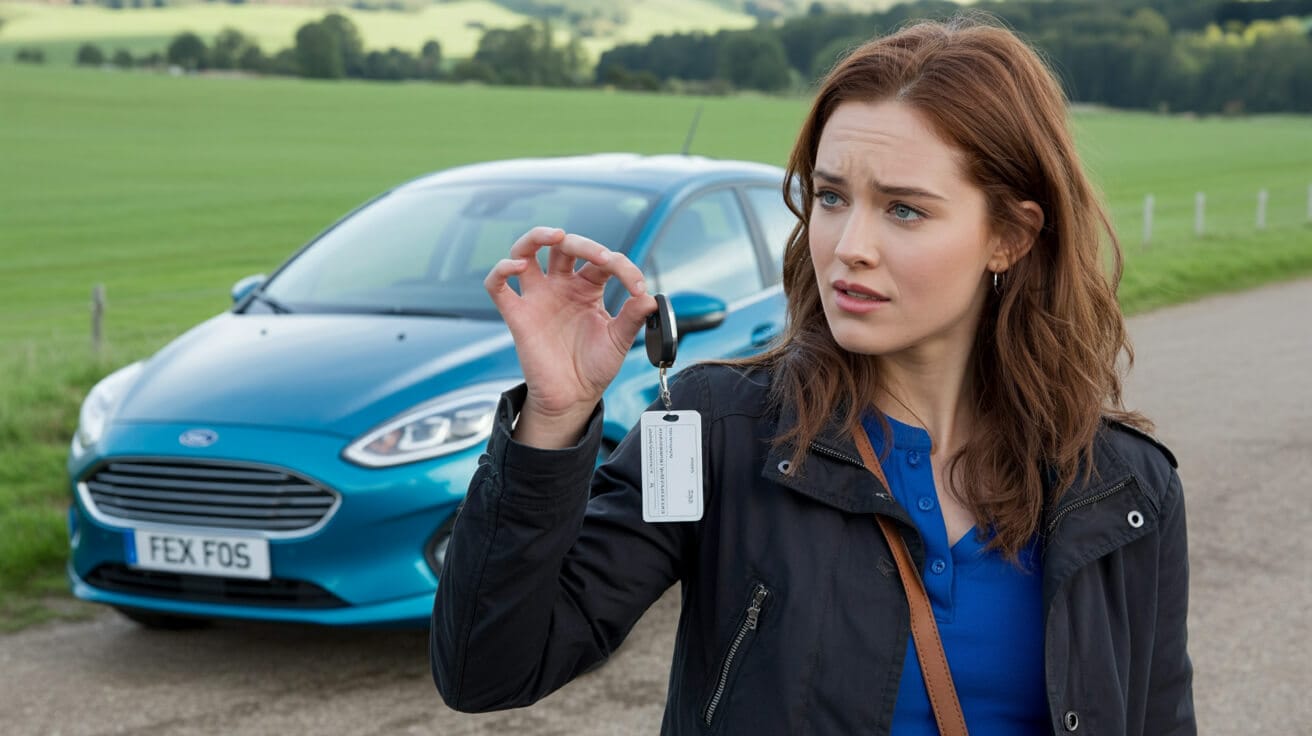
A qualified mobile locksmith doesn’t just show up and press buttons—they work through a rigorous process refined for security, documentation, and verifiable outcomes. From first introduction to final demonstration, your experience should feel as robust as a dealer, but more convenient.
From the moment the technician arrives, you should expect transparency. A pro explains each step, verifies your legal right to the vehicle, and spells out how evidence and consent will be captured. Your rights—and your security—are protected all the way through.
The Pre-Programming Essentials
No reputable provider hands out car keys without a tightly documented check-in: photographic ID matched to address or V5, a job record opened, and environment noted for risk (e.g., roadside). Where non-destructive methods are viable, they come first. If not, you’re walked through options and risks.
This preparation makes the whole difference. It gives you a record if anything ever comes into question—whether it’s insurers, police, or your own peace of mind.
On-Site Programming With Proof
From plugging in the diagnostic tool to coding and verifying the new key, every step is logged: which tool was used, by whom, on which car, and at what time. Photos and live demonstrations (lock/unlock/start/alarm) aren’t just for show—they’re your backup if you need a warranty fix or to prove proper procedure to a third party.
You leave every mobile appointment with as much documentation as a top-tier workshop visit—no gaps, no doubt.
When Is a Workshop Appointment Absolutely Necessary?

Not every car can or should be programmed kerbside. Advanced features call for advanced equipment—sometimes only found in a secure, purpose-built facility. Reasons for a workshop visit include digital key systems, immobiliser replacements, module adaptations, or any service that requires secure connections or dual authentication.
If you’re driving a recent luxury model (think Range Rover, Tesla, Audi) or if your problem involves modules coded directly to the car’s main control unit, a workshop setting ensures compliance, reliability, and risk control.
A good provider never pushes you toward the workshop unless it’s truly needed—expect a step-by-step rationale, not a convenience excuse.
When the Workshop Is the Only Path
Certain situations can’t be resolved on your driveway—even with the best mobile van on the road:
- Updates or firmware changes that must connect to manufacturer servers.
- Complex immobiliser resets that require controlled conditions.
- Warranty or insurance requirements demanding double sign-off.
- Faults in the car’s electrical or network systems that make field work risky.
You deserve a clear audit trail and compliance at every turn.
Comparing Mobile and Workshop in Practice
| Scenario | Mobile | Workshop |
|---|---|---|
| Basic Key Replacement | Yes | Rare |
| Immobiliser Reset | No | Yes |
| Digital Key Provision | Rare | Yes |
| Warranty/Insurance | Yes* | Yes |
*Only if audit documentation matches workshop standards.
Is the Service Safe and Insurer-Ready, or Does It Leave You Vulnerable?
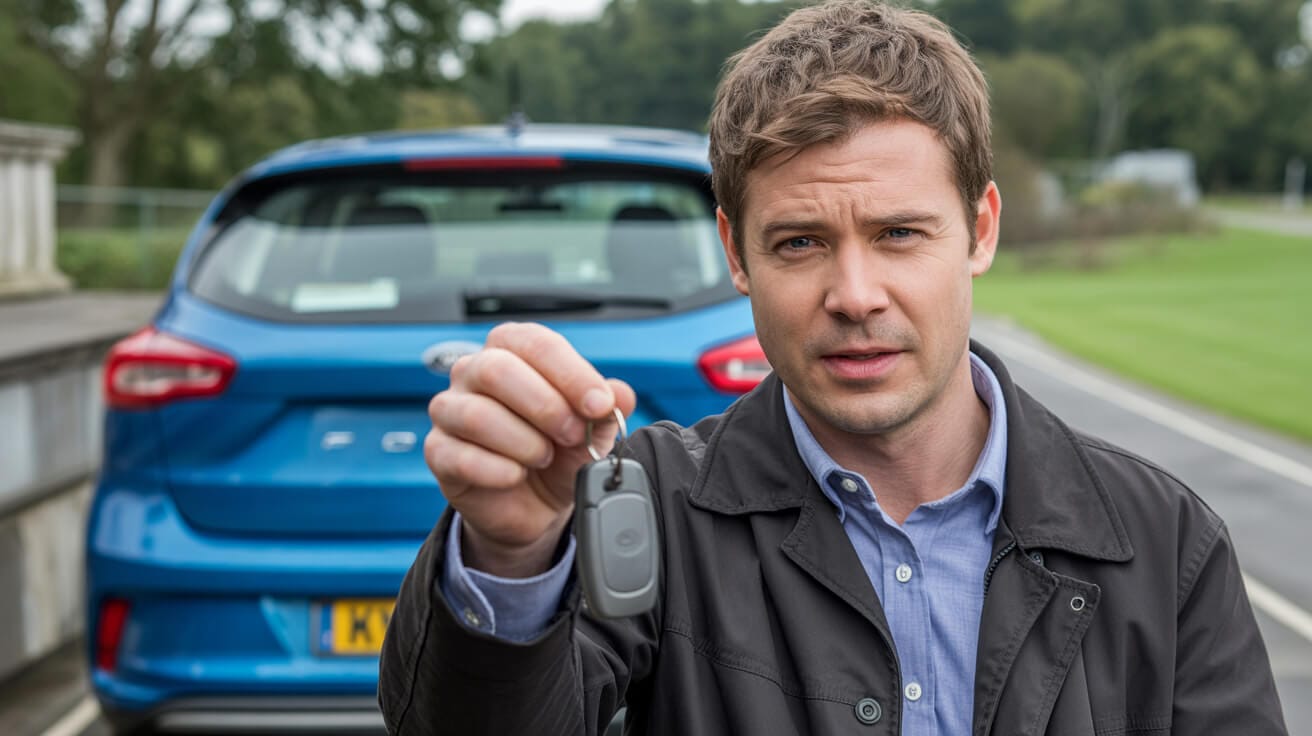
Safety is never about “good intentions”—it’s about process, record, and compliance. UK law and insurance policies demand that car key programming events be fully documented and aligned to standards such as ISO 26262 (Functional Safety) and applicable radio/emissions rules. Providers who skip steps aren’t just risking your car—they’re risking you.
True safety comes from traceability: every keystroke, every job, every consent is logged, encrypted, and retained per the law. If you ever need to prove work was done right, the job record stands between you and stress. If your provider’s answer to “How do you document my service?” is “Don’t worry, we always do a good job,” that’s not good enough.
What Audit-Ready Looks Like
Audit-ready service is about more than paperwork—it’s about protecting your claim, your warranty, and in some cases, your car’s resale value. Your record should include:
- Staff credentials and background verification.
- Secure, encrypted storage of every job and tool used.
- A clear, printable chain of custody for every new key.
- Aftercare notes and an invitation for honest feedback.
The discipline that protects your interests is visible on paper, not just in conversation.
Risks of the Cut-Price or Documentation-Lite Operator
Lax or incomplete documentation can void your warranty, endanger insurance claims, or, in a worst case, see your car’s security compromised. Don’t gamble with anonymity—insist on audit policy and traceability, every single time.
What Toolkits Make the Difference in Mobile vs Workshop Programming?

Complex cars call for advanced equipment. While top mobile vans now carry dealer-grade scan tools, traceable van stock, and secure diagnostics, some jobs demand workshop-exclusive hardware, such as networked immobiliser reset stations, protected module configurators, or voltage-stable battery supports to prevent catastrophic loss during programming.
The real non-negotiable? Documented proof at every step. Providers who blend speedy fixes with ironclad audit are the ones keeping your security, compliance, and convenience in perfect balance.
On-Site Essentials That Protect You
Expect your technician to arrive with:
- Certified, UK/EU-compliant programming devices updated for your model.
- Registered and photo-logged key blanks, remotes, and batteries.
- Trim protection kits (no scratches or tool marks left behind).
- On-van documentation systems—every step mapped to you and your car.
If anything doesn’t go as planned, you want swift escalation: perhaps direct transfer to the workshop, or guidance to official dealer/OEM support, with every handover properly documented.
Workshop-Only Features
For the highest-security jobs:
- Proprietary network tools for complex immobiliser or digital key sync.
- Secure module adaptation with documented, version-controlled upgrades.
- Stable physical environments for voltage- and RF-sensitive workflows.
- Backed-up aftercare, warranty activation, and recall data automatically linked to your case.
If the chain of evidence breaks, your protection breaks—don’t settle for less.
Side-by-Side Table: Audit vs. No-Audit
| Protection Category | Audit-Ready | No-Audit |
|---|---|---|
| Warranty Validity | Proven | At risk |
| Insurance Support | Documented | Frail |
| Data Security | Encrypted | Uncertain |
| Customer Review | Verified | Ignored |
The hidden cost of a cheap service: sleepless nights and lost claims.
How Do Costs, Delays, and Long-Term Security Differ By Route?

The urge to solve a lost key problem fast and cheaply can turn into a much bigger bill if you skip the details. An audit-led, standards-based service might cost a little more up front, but it earns its keep through reduced re-visits, valid warranty and insurance support, and minimised risk of security mistakes.
Ask for line-item pricing, see every aftercare policy, and check that there’s real support behind every promise. If your technician squirms when you request documentation, you’ve just saved yourself a mistake and a refund chase.
The cheapest solution now can quickly become the most expensive if you’re left without evidence when you need it.
True Cost of Quality Key Programming
When you choose audit-backed programming, you’re buying not just a key, but an insurance policy against future hassle. What you pay up front protects you from rework, denied claims, or disputes about who did what.
A credible provider will show you real-world stats: completed jobs, redo rates, aftercare calls, warranty resolve times. Every documented success is a savings multiplier you’ll be glad you chose.
What Myths Sabotage Security or Cost You More With Car Key Programming?
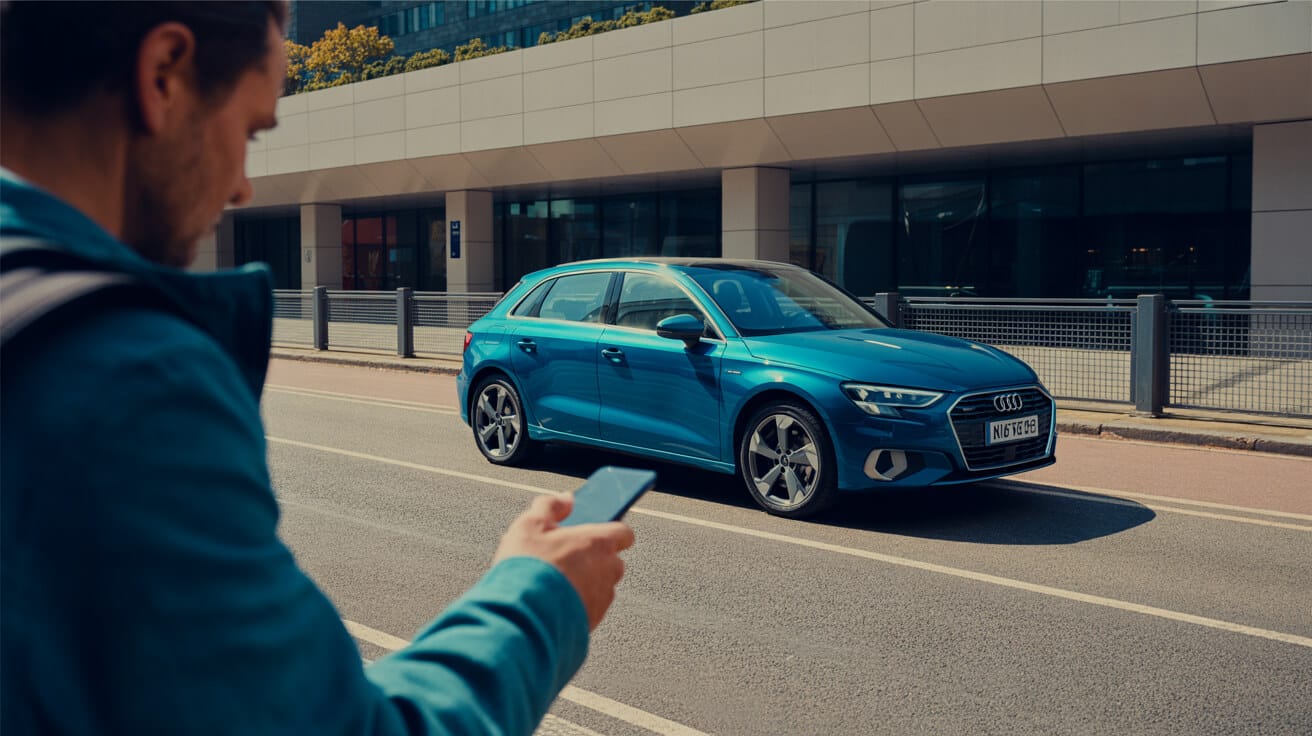
Many drivers hear half-truths about mobile or workshop programming. Some believe mobile pros “can’t touch the newest models” or that dealerships “guarantee everything.” The truth lies in shown outcomes, not brand or myth. A company with an audit trail and customer-verified proof can outperform a badge, every time.
A high-integrity approach matches process to the need; decisions rest on your car, your security, and the record you can show if questions ever arise. Blind trust costs more than fact-finding ever will.
Common Myths vs. Proven Outcomes
- *Myth*: Dealer or workshop is always safer.
Reality: Only audit-verified outcomes protect you—location means nothing without process.
- *Myth*: Any key can be programmed at home.
Reality: Newer or more secure cars may require the latest kit or workshop server links.
- *Myth*: Documentation is just “extra.”
Reality: Your warranty, insurance, and peace of mind depend on every field being filled, every job log being retrievable.
If you can’t prove it, you can’t claim it.
What Steps Should You Take for Trouble-Free Key Replacement? (Checklist)
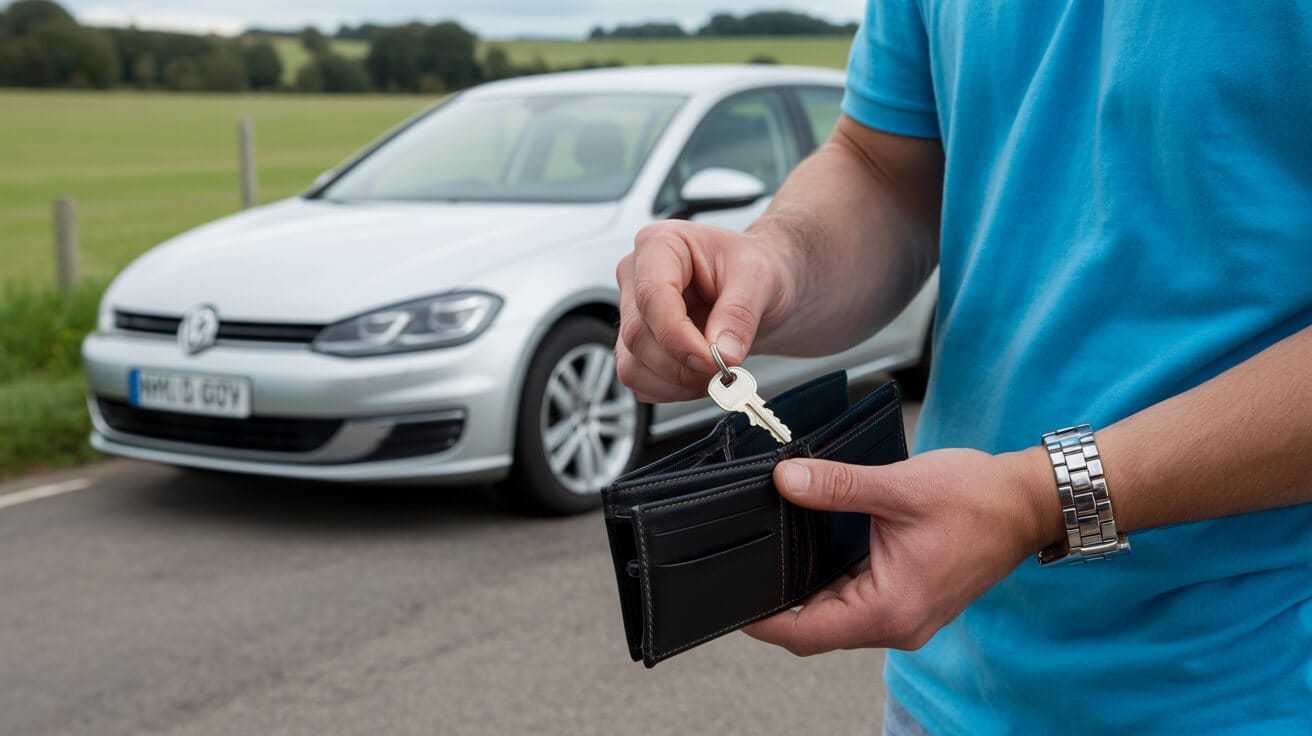
Losing your key is stressful—but staying in control takes just a little discipline.
Key Steps for Secure Car Key Programming
- Confirm Eligibility Upfront – Provide make, model, year, and ask if on-site is truly viable.
- Insist on Identity Verification – No service should start without proof you own or control the vehicle.
- Demand Full Documentation – Photo logs, staff IDs, tool records, and aftercare must be standard.
- Clarify Aftercare and Warranty – Know exactly what’s covered and how to activate ongoing support.
- Ask for the Audit Chain – Your job record should be traceable from booking to completion to post-service.
- Approve Any Escalation – If workshop work is needed, understand the reasons and sign off beforehand.
A few extra minutes now flip pain into proof—and future hassle into security.
Why Autolocks Ltd Sets the Standard for Secure, Audit-Led Car Key Programming
Car key emergencies don’t wait for office hours—but they always demand professional, traceable solutions. Autolocks Ltd leads with security-first, owner-verified procedures, whether we’re at your kerbside or inside our fully equipped workshop. From your first call to finished job, you are protected by clear process: eligibility checked, consent confirmed, work photo-logged, and aftercare locked in.
You’ll never be left wondering what was done, who did it, or whether you can prove a warranty or insurance claim. Our audit policy, compliance with ISO standards, and zero-shortcut DNA set us apart. When your peace of mind and your car’s future are at stake, you want a partner who’s as serious as you are.
Choose Autolocks Ltd when you want secure, transparent car key programming and replacement, world-class compliance, and support that’s as relentless as your schedule. If you value solutions proven by records—not just promises—we’re always ready to help.
Frequently Asked Questions
Can any vehicle really be programmed roadside—or what stops on-site key work cold?
Not every vehicle can be programmed at your address—even with the best mobile equipment. Success rides on your car’s age, trim, software, and which security modules it carries. Autolocks Ltd checks your make, model, and registration against a live, engineer-updated eligibility matrix before any booking. That means you see, in writing, whether your job is safely possible kerbside—or if strict manufacturer protocols, advanced immobilisers, or special workshop tools are required. If your car needs bench-only handling (due to “all keys lost,” high-security modules, or network resets), you’ll get early, clear redirection to avoid wasted visits, risks to your warranty, or surprise costs.
The proof you want? Written, not verbal—matrix-backed, not let’s see on the day.
Before work, expect copy of the eligibility record and an explicit rundown of ID and owner checks you’ll be asked for. A professional locksmith walks you through legal compliance, data privacy steps, and what’s logged in your job record—every scan, code, and handover is tracked with photo evidence for your and your insurer’s security. If any provider hedges or won’t show this process up front, pause until you see it spelled out.
What to verify up front
- Model/year-specific eligibility (live matrix, not web copy)
- Owner/ID/policy controls at arrival—no exceptions
- Advance clarity if workshop handling is required
- Sample audit log and compliance proof pack you’ll actually receive
| Factor | Required Proof |
|---|---|
| Supported Kerbside? | Engineer eligibility matrix |
| Legal owner check? | Photo ID + V5C or lease app |
| Data/audit plan? | Sample job log + GDPR note |
| Workshop warning? | Early, written instructions |
Seeing your job in a real-time matrix and audit chain protects you from risk, rework, and disappointment down the line.
What does a proper on-site key programming procedure look like—every step, no shortcuts?
The gold standard: transparency, sequencing, and inescapable audit trail at each action. The Autolocks Ltd engineer triggers an arrival alert (with ID and DBS status), confirms ownership with you, and carefully walks you through what will be done and why. Visual checks come first—locks, handles, trim, weather risk, power checks—logged and photographed before tools reach your car. The programme sequence unfolds stepwise: job setup, vehicle diagnostics, scan for DTCs, live parameter checks, and only then does the coding/learning event start—never shortcut by guesswork.
Every touch is time-stamped and photo-logged, right down to the final functions: lock/unlock, alarm, and ignition. A real post-job handover means demoing every programmed feature on the spot, followed by a digital copy of your audit pack—photos, job steps, compliance details—that you can save for any warranty or insurer issue in future.
If you’re not getting transparency in real time, you’re getting more risk than resolution.
Core steps to insist on
- On-site ID and eligibility check (text/email alert, badge seen)
- Step-by-step workflow explained ahead—no mystery or pressure
- Physical and digital audit at every action, with photo log
- Live result demonstration: keys, locks, immobiliser, start/stop
- Digital aftercare and warranty docs in your hand before anyone departs
| Stage | What you should see | What to reject |
|---|---|---|
| Arrival and ID | Message/photo + in-person badge | “He should be there” |
| Lock inspection | Photos & pre-damage log | “It’ll be fine” |
| Digital job log | Real, stepwise, photo-based | Verbal notes |
| Live function demo | You test, they prove with you | “You’re all set, bye” |
| Audit pack | Owner copy right now | “Emailed later?” |
Always expect to watch the whole proof chain unfold—your vehicle security deserves the same diligence as your bank account.
When do you genuinely need a workshop job—and what are the real thresholds?
You’re forced to workshop only when safety, security, or compliance demand it—this isn’t a profit tactic but a best-practice cut-off. Certain modules (engine or gateway replacements, hardwired firmware updates, high-value fleet or insurance-mandated tasks) cannot be lawfully finished at home because they need bench-level equipment, backup power, dual-auth logs, or compliance controls verified in a regulated environment. Autolocks Ltd triggers the “workshop required” route the moment your job crosses these lines—no lost time or guessing at kerbside.
If anyone asks you to waive documentation or agree to a non-traceable fix, pause. True professionals will always choose safety, warranty, and compliance first.
Real workshop-only triggers
- Module “bench flash” or serialisation
- Power or grounding risk to in-car electronics
- High-value, insurance-flagged, or fleet jobs
- OEM policy blocks or latest network lockdowns (proven per-make/model)
| Scenario | Mobile Possible? | Workshop Only? |
|---|---|---|
| Standard spare key | Yes, if matrix OK | Rarely |
| Lost all keys | Sometimes | Usually |
| ECU/module replacement | No | Always |
| Large-fleet job | Maybe (depends) | By policy |
The right provider carries both comfort with redirection and capacity for secure handover—your records, warranty, and car all protected by a system, not “a try and see.”
How do legal, insurer, and privacy rules protect you—or leave you exposed?
In the UK, traceability isn’t just good practice—it shields your ownership, privacy, and claims position. Autolocks Ltd’s team works to ISO 26262 and 21434 contexts, capturing engineer credentials, access logs, and digital audit trails for every job. Your consent and ID checks go hand in hand with secure, encrypted records—GDPR-compliant, access-controlled, deleted after minimum retention.
Every owner action is documented; every engineer move yields proof and timestamp. For insurance, warranty, and dispute resolution, you get both digital and printed evidence packs—no “he said, she said.” The best providers present compliance up front: you see insurance, data policy, and live credentials before the wheels stop.
The weakest link isn’t hardware, it’s paperwork—trust the process that you can see and keep.
Your legal/compliance checklist
- ID/consent: always, no exceptions—even for “simple” keys
- Encrypted digital logs: your copy, engineer’s, and insurer’s if needed
- GDPR/data retention: clear document on how long, where, and why records kept
- Job log export: from tools, not memory
- Aftercare docs: printed or emailed instantly
| Compliance Item | Your Right / Supplier Duty |
|---|---|
| Photo ID / V5C log | Always show and log |
| Audit chain | Physical and digital, yours to keep |
| Credentials | View DBS/insurance before work |
| Proof for claims | Digital export, insurer-ready |
| Data privacy | Written and role-secured, not blank |
If a locksmith is evasive about audit, privacy, or credentials, take it as a sign to move on.
What makes top-tier mobile kit and training different—and why does it matter for your car?
The van means little without up-to-date tools, full calibration, and engineers who know both the hardware and compliance landscape. Autolocks Ltd invests in regular calibration and approval cycles for every key programmer and diagnostic tool. When a job is booked, the van’s kit is double-checked for support of your exact year, model, and trim—alongside live software coverage for new vehicle update cycles.
Technicians follow strict “non-destructive first” and “no guesswork” policies: every attempt leaves a record, and trim damage risk is logged with photo before and after. If the car’s requirement outpaces the mobile kit—like with cryptographic immobilisers, latest digital keys, or unknown network error codes—the team instantly escalates to a workshop hand-off, often couriered with you informed before any charge is applied.
Success isn’t luck or ‘good enough’—it’s building proof at every link, so insurance, resale, and legal needs are always met.
Why kit, process, and data matter
- Brand-fit calibration: always for your make/model
- Audit of tools: certificate/evidence before use
- Digital log for every button pressed—no skipped steps
- Escalation plan: clear, written, and costed in advance
- Benchmark stats shared (first-time fix, warranty, satisfaction), not just listed on the site
| Resource Type | Autolocks Ltd Standard | Low-Cost “Option” |
|---|---|---|
| Calibrated tools | Yes; logged | Unclear |
| Audit log | Digital, by step | If asked, or verbal |
| Escalation protocol | Documented, visible | None / post-facto |
| Stats/reporting | Live, segment-based | “Industry average” |
Ask to see proof—before it could cost you more.
What’s the real storey on cost—and where is risk hiding in the numbers for mobile vs workshop?
Surface-level price checks only tell part of the storey. True visibility means every cost—labour, parts, software, aftercare, risk surcharge, out-of-hours premiums—is broken down before you agree to anything. Autolocks Ltd quotes disclose every charge up front, from callout to van stock to data compliance fees if they apply; nothing gets tucked away until after the work.
If compliance, car age, or technical risk push a job from kerbside to workshop, higher costs for controlled power supplies, secure data handling, or extra audit steps are flagged before arrival. Live metrics—redo rate, satisfaction, warranty status—are exportable from the same system, so you see real incident rates for your job type, not only marketing averages.
A cheap key risks expensive come-back jobs, insurance claim denial, or future hardware headaches—transparency is the only savings that lasts.
What to see, not just hear
- Itemised, all-in quote (covering parts, labour, audit)
- Written notice of surcharges or out-of-hours fees
- Metrics on first-time fix, redo, and aftercare performance for your exact case
- Audit and warranty packet you keep at the end—not “later by email”
| Cost Factor | You should get |
|---|---|
| Labour/callout | Itemised quote, up front |
| Weekend/evening uplift | Written before you commit |
| Compliance/data fee | Clear, on invoice |
| Risk/performance stats | Exported, not just stated |
| Aftercare/warranty | Full packet, job-end, not pending |
If you receive a one-line “standard” quote, you’re still at risk—always ask for an itemised, transparent record.
What silent myths still trap vehicle owners—and how do you lock in rock-solid outcomes?
Beliefs like “mobile means lower safety,” “all jobs are easy,” “anybody can code my key,” or “I’ll spot a dodgy operator myself” risk not only your wallet but your data and warranty. The real world is more nuanced: some cars are fully mobile-ready, others need hard-wired updates, and only live matrices—plus transparent engineer logs, daily ID checks, and clear escalation plans—can tell you which is which.
Autolocks Ltd uses visible tool logs, proof-of-process, and compliance/information packs for every job. If a mobile solution is possible, you get end-to-end demo, your own digital packet, and no risk of warranty voiding. If the car isn’t supported, redirection happens with clear documentation, before any bill is raised.
Risk shrinks to zero with proof—when a provider hesitates, you pause until they catch up.
Bulletproof practices for owners
- Always see live eligibility and van kit check, not just verbal assurance
- Never agree to work with invisible process or no digital handover
- Confirm fallback/escalation plans before work starts
- Keep all digital logs, photos, and aftercare/warranty documents for your records
| Trap Myths | How to close the gap |
|---|---|
| “Mobile is unsafe” | Demand proof-of-process, not “feel” |
| “Audit logs are extra” | Collect your digital audit, always |
| “Any shop will do” | Engineer ID/credentials up front |
| “Failed jobs are free” | See the policy/paperwork first |
| “Reviews = outcome” | Get real-time metrics on your case |
Choose Autolocks Ltd to see the entire security, compliance, and transparency process before work starts—then keep the proof after it’s done. Ready to book with confidence? Secure your audit, eligibility scan, and transparent, professional support from a brand that proves everything, not just promises.

